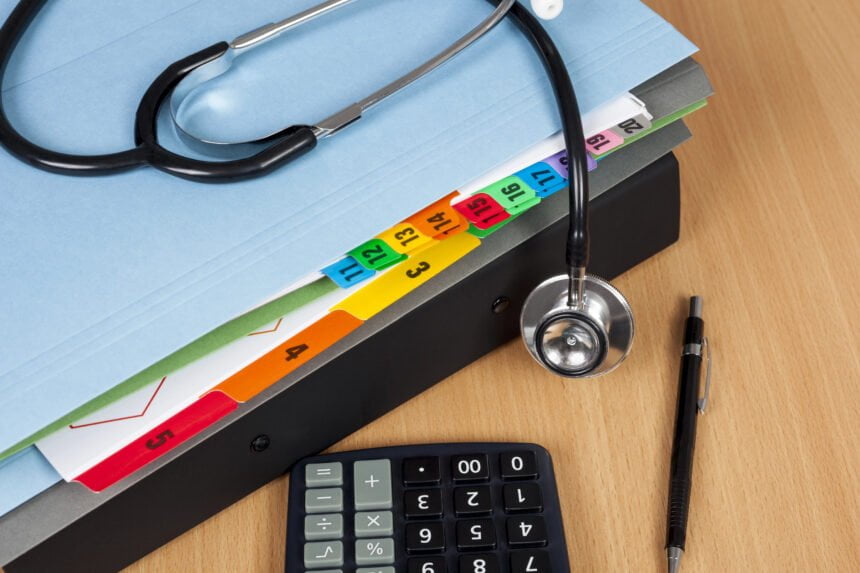The 2024 presidential election is in full swing and one of the biggest things that both candidates are talking about is healthcare. Kamala Harris has talked about some of her proposals to fix the healthcare system in recent years, which includes shifting towards a Medicare for All plan.
Many healthcare professionals argue that fixing medical records can significantly improve healthcare. Nichole Sweeney, J.D., in-house general counsel and chief privacy officer for Maryland-based CRISP Shared Services is one of them.
“With issues like granular consent……it is not helping patients and it is not engendering confidence in EHR systems, HIEs or the federal government that the overwhelming consensus seems to be that this is too hard. Just try something. And at least, be willing to come out and say ‘we’re not going to get it right the first time. This is complicated, but we know this is a priority.’” says Sweeney.
However, while it is interesting to hear the candidates go into detail about their healthcare policies, the rest of us need to do our part to fix the system as well. We are going to cover one of the most important things that the healthcare system can do to improve patient outcomes, which is to work on managing medical files more easily.
In some of our recent articles, we have talked a lot about some of the changes affecting the healthcare sector. Today, we are going to talk about the importance of managing medical files better.
Every workplace is responsible for managing medical files in a secure and organized way. It is important to keep confidential health information secure and easily accessible for authorized personnel, while keeping it away from those who do not need access. This is why it is important for employers to have an efficient system in place to manage medical records.
What is an Employee Medical File?
Employee medical files are documents that contain sensitive information about an employee’s health. They may include doctor’s notes, treatment plans, and personal notes from the employee such as allergies to medications. Medical files can also include records of medical tests conducted on employees and any other documents related to their health. These files are typically kept confidential in order to protect employees’ privacy. Employers should have a policy in place for handling employee medical files and ensure that only those with access can view them. They are often referred to as electronic health records.
Why Is It Important to Manage Medical Files?
It is important to manage and store employee medical files in a secure, confidential manner. Doing so complies with legal requirements for the protection of employee health information, such as the Health Insurance Portability and Accountability Act (HIPAA). It also ensures that employees have access to their own medical records when they need them.
What Is Included in an Employee’s Medical file?
Most employers should include the following information in an employee’s medical file:
- Medical history and any pre-existing conditions. For example, if the employee has been diagnosed with a chronic illness, that should be noted in their medical file.
- Medical test results. These may include blood work, imaging scans, and other tests conducted by a physician.
- A doctor excuse note from visits or other treatments such as physical therapy sessions.
- Records of any medications taken by the employee.
- Documentation of any occupational injuries or illnesses.
- Records of any workers’ compensation claims filed.
- Documentation of any immunizations or vaccinations.
- Results of medical tests and screenings conducted on the employee.
- Information related to health or life insurance coverage. It should also include any other relevant documents related to the employee’s health.
Employers are typically responsible for filling in and maintaining employee medical files. However, it is important to note that employees should always be involved in the process, such as verifying or updating their information when necessary. Whenever employers access an employee’s medical file, they should also make sure that all information entered is accurate and up to date.
Specifics of Family and Medical Leave Act (FMLA)
The FMLA is used to protect employees who need time off due to a serious health condition or care for a family member with a serious health condition, so employers should use the employee’s medical file as a reference when considering granting FMLA leave.
Under the Family and Medical Leave Act (FMLA), employers are required to keep certain records related to their employees’ use of FMLA leave. This includes the employee’s name, dates of leave taken, any medical certifications submitted by a health care provider, notices received from the employee about a need for leave, and any other documentation related to the FMLA leave. This information should be kept in the employee’s medical file, so it can easily be accessed if needed. It is important because it helps employers comply with the FMLA regulations and ensure their employees are receiving the appropriate leave entitlements.
For example, if an employee needs to take FMLA leave for a serious health condition, the employer should be able to quickly and easily review the employee’s medical file for evidence of any relevant medical certifications. This will help ensure that employers are granting employees their proper rights under the law.
Confidentiality Aspect
Confidentiality is extremely important when it comes to managing employee medical files. The reason is that these files contain sensitive health information about employees, which can be subject to privacy laws.
Employers should ensure that employee medical files are kept in a secure location and only accessed by authorized personnel with the appropriate credentials. Employers should also have measures in place to protect the information from unauthorized access or disclosure. This may include encrypting digital versions of the medical files, or using secure storage facilities for hard copies. By following these protocols, employers can ensure that employee medical files remain safe and secure while providing employees with access to their own records as needed.
Employees should also be made aware of their rights regarding the privacy of their health information. The employer should make sure that all employees have access to information about how their medical information is protected, and what steps they can take to ensure that it remains secure. This is where HIPAA regulations come into play. They set out clear guidelines for how employers must handle employee medical information. For example, employers must provide appropriate training to those with access to the files, ensure that they are kept securely, and handle any requests for information in accordance with HIPAA regulations. By following these guidelines, employers can ensure that their employees’ medical information remains secure and private at all times.
How to Effectively Manage Employee Medical Files?
Effective management of employee medical files requires that employers:
- Create a set of policies and procedures for maintaining and accessing employee medical records
- Securely store the records in a locked file cabinet or secure electronic system
- Ensure that only authorized personnel have access to the records
- Provide annual training on the proper use and disclosure of medical information
- Limit access to employee medical files to only those who need it, such as supervisors or HR staff
- Ensure that all employees understand their rights related to their health information
- Destroy any outdated or unnecessary records in accordance with the law.
By adhering to these practices, employers can ensure that their employees’ medical files are handled in a manner that is secure and compliant with the applicable regulations. This will help protect both the employee’s privacy and the employer’s legal obligations. Additionally, it will ensure that the employee’s medical information is available when they need it. In short, effective management of employee medical files can help employers create a secure and compliant workplace.
Conclusion
Managing and storing employee medical files is important for compliance with legal requirements, as well as ensuring that employees can access their own records when needed. Employers should make sure that all relevant information is included in the employee’s medical file and that it is securely stored in a confidential manner. Additionally, employers should be sure to keep any records related to employees’ use of FMLA leave as required by law. By properly managing medical files, employers can ensure the safety and privacy of their employees’ health information.







